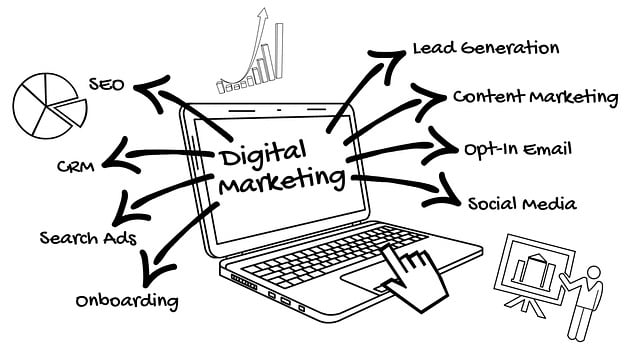AI dietary preference tagging engines are revolutionizing talent acquisition by streamlining hiring processes through machine learning. These algorithms predict performance and cultural fit, automate initial screening, and focus recruiters on in-depth interviews, attracting top talent efficiently. In sectors where health and dietary needs matter, these tools categorize candidates based on preferences like vegetarianism or gluten-free diets, fostering inclusivity. While integrating AI into recruitment faces challenges like data quality and privacy concerns, its potential for enhanced efficiency, decision-making, and candidate experience is significant when ethical standards are maintained.
In today’s digital era, AI business talent acquisition automation is transforming recruitment strategies. This article delves into the intricacies of AI automation in talent acquisition, exploring key components like AI dietary preference tagging engines. By examining these technologies, we uncover the benefits and challenges associated with implementing AI in business recruitment, offering valuable insights for HR professionals navigating this game-changer.
- Understanding AI Automation in Talent Acquisition
- The Role of AI Dietary Preference Tagging Engines
- Benefits and Challenges of Implementing AI in Business Recruitment
Understanding AI Automation in Talent Acquisition

AI automation in talent acquisition is transforming the way businesses source and recruit top talent. By leveraging machine learning algorithms, companies can streamline their hiring processes, making them faster, more efficient, and sometimes even more effective than traditional methods. AI dietary preference tagging engines are one such innovation, enabling recruiters to quickly filter and categorize candidates based on specific criteria like dietary preferences, ensuring diverse and inclusive hiring practices.
This technology goes beyond simple data sorting. Advanced AI models can analyze resumes, social media profiles, and other sources to predict candidate fit, performance, and potential cultural alignment. By automating initial screening and assessment, recruiters gain valuable time to focus on more complex tasks like in-depth interviews and final decisions. The result is a streamlined recruitment process that attracts and retains top performers while minimizing bias and maximizing efficiency.
The Role of AI Dietary Preference Tagging Engines

AI dietary preference tagging engines play a pivotal role in revolutionizing talent acquisition within businesses, especially those operating in industries where health-consciousness and specific dietary requirements are paramount. These innovative tools utilize artificial intelligence to analyze and categorize candidate profiles based on their dietary preferences, such as vegetarianism, veganism, gluten-free diets, or other specialized needs.
By integrating AI dietary preference tagging, recruitment processes become more efficient and tailored. Engines can automatically filter resumes, ensuring that suitable candidates who align with a company’s specific dietary requirements are readily identifiable. This automation not only saves time for HR professionals but also promotes inclusivity by demonstrating an understanding of and respect for individual dietary choices.
Benefits and Challenges of Implementing AI in Business Recruitment

The implementation of AI in business recruitment offers a multitude of benefits, revolutionizing the way companies source and screen talent. With advanced algorithms, AI dietary preference tagging engines can analyze vast amounts of data from resumes and applications, identifying top candidates with precision. This automation streamlines the initial screening process, saves time for recruiters, and ensures a more diverse and inclusive candidate pool by minimizing human bias.
However, challenges arise when integrating AI into recruitment processes. Data quality and privacy concerns are paramount, as AI models heavily rely on accurate and extensive datasets. Additionally, maintaining ethical standards and preventing algorithmic biases is essential to ensure fair practices. Despite these hurdles, the potential for AI in talent acquisition is significant, promising improved efficiency, better decision-making, and a more personalized candidate experience.
AI automation, particularly with advanced AI dietary preference tagging engines, is transforming business talent acquisition. By streamlining processes and leveraging data-driven insights, companies can significantly enhance their recruitment efficiency and effectiveness. However, implementing AI in hiring requires careful consideration of potential challenges like bias, ethical concerns, and the need for human oversight to ensure fair and diverse talent pools. With the right approach, AI automation promises to revolutionize business recruitment, attracting top talent while maintaining a competitive edge in today’s digital era.
